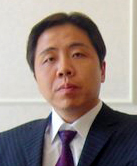
Well-defined processes enable strong management and execution on the part of IT operations groups, as well as line-of-business participation in the request and maintenance of IT assets. However, although every ITO group has some procedural-level documentation (e.g., a service request form) and tool automation, META Group finds that fewer than 10% of IT operational groups have their IT processes defined beyond simple process names or high-level process tasks.
META Group will be discussing successful process-refinement efforts and best practices for the ITO this week at its Infrastructure/Operations Excellence Conference & Technology Showcase 2004 in San Francisco.
"Through 2008, IT operations groups seeking to effectively develop and enhance their operational processes will formalize their efforts, focusing on process definitions, performance measurement, and analysis of potential refinements," said Dan Vogel, senior vice president of META Group's Operations Strategies service. "Although most IT operations groups' efforts are still in their infancy, many of these groups are turning to META Group to learn how to leverage process-refinement practices and ultimately create a culture that embraces continual improvement."
Numerous frameworks for process, governance, and quality currently are used within the IT community at varying levels, with each methodology or framework having particular benefits and weaknesses associated with it. META Group has identified 16 core IT operational processes, with 21 related subprocesses, as well as numerous process-use scenarios. In addition to these processes, the most commonly used frameworks/methodologies in the Global 2000 include:
- IT Infrastructure Library (ITIL), which commonly focuses on 11 service delivery and support processes
- Control Objectives for Information and related Technology (COBIT), which identifies four primary domains, with 318 associated control points for measuring process compliance
- The Project Management Institute, which has a project management framework
- Six Sigma, which identifies a process-refinement pattern (i.e., define, measure, analyze, improve, and control) to minimize output defects
"Although there are many potential process, governance, and quality frameworks to choose from, no single process or control framework currently serves as a comprehensive process framework across the entire IT community," said Vogel. "Through 2008, ITOs must design their refinement initiatives with numerous considerations in mind, including the intended objective of the initiative, the organization's willingness to modify and extend the existing frameworks, and the cultural willingness to embrace framework concepts."
- 信息系统运维预算定额参考标准研究[04-09]
- 第2章 跨文化管理理论和实践[01-14]
- 16:什么是关键成功因素法(CSF)?[06-09]
- 第4章 跨文化沟通[01-14]
- 24:eSCM-SP(服务提供商外包能力模型)有哪些…[06-10]
- 治理评论第一期[01-20]
- 治理评论第六期[01-20]
- 治理评论第四期[01-20]
- 治理评论第五期[01-20]
- 治理评论第三期[01-20]
- 治理评论第二期[01-20]
- 太极凭什么中标12306? [09-26]
- 中国国际航空股份有限公司--书评[11-01]








